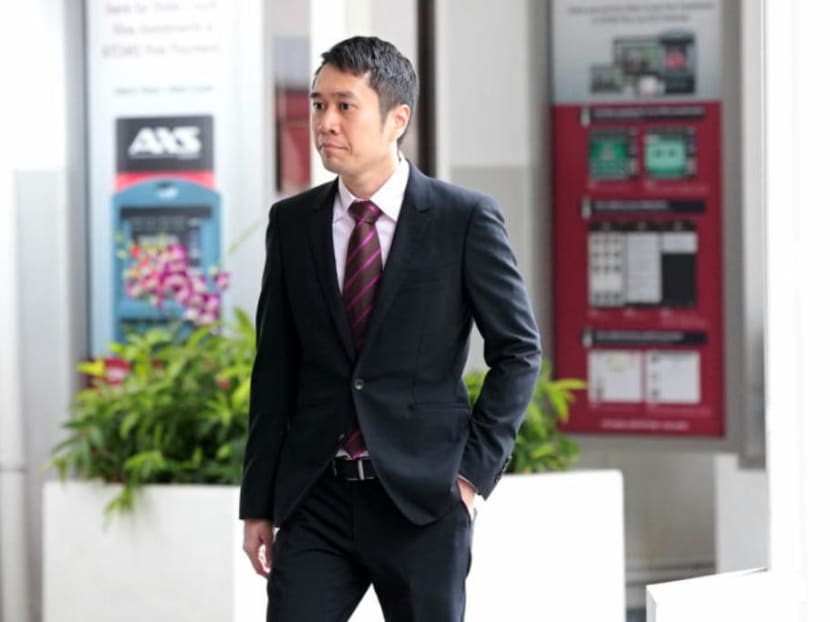Apex court dismisses Jolovan Wham’s challenge that requirement to obtain permit for public assembly is unconstitutional
SINGAPORE — The Court of Appeal has dismissed a challenge by social activist Jolovan Wham, who argued that the need to obtain a permit to hold a public assembly under the Public Order Act is unconstitutional as it violates the constitutional right to freedom of assembly.

Jolovan Wham's challenge is part of his appeal against his conviction for holding an indoor assembly with Hong Kong activist Joshua Wong.
- Apex court says constitutional rights to freedom of assembly are not unlimited
- Jolovan Wham's challenge is part of his appeal against his conviction for holding an indoor assembly with Hong Kong activist Joshua Wong
- Police had told him a permit is required as Mr Wong is not a Singapore citizen
SINGAPORE — The Court of Appeal has dismissed a challenge by social activist Jolovan Wham, who argued that the need to obtain a permit to hold a public assembly under the Public Order Act is unconstitutional as it violates the constitutional right to freedom of assembly.
While Article 14 of Singapore’s constitution guarantees the right to freedom of speech, assembly and association, the court in its judgement on Friday (Nov 6) noted that the rights under the Article are subject to restrictions and are not unlimited.
Wham’s challenge comes as part of his appeal against his conviction and S$3,200 fine for organising an event, titled Civil Disobedience and Social Movements, which featured Hong Kong activist Joshua Wong making a speech.
The police had told Wham that he required a permit for the event as Mr Wong is a foreigner, but he went ahead with the event.
Wham’s arguments for his challenge that the permit requirement is unconstitutional were premised on:
The licensing scheme under the Public Order Act subjects a citizen’s constitutional right entirely to the decision of the Police Commissioner
The Commissioner has “untrammelled power” to constrain a citizen who wants to exercise Article 14 of his constitutional rights
The five-judge court, which included Chief Justice Sundaresh Menon and Judges of Appeal Andrew Phang, Judith Prakash, Tay Yong Kwang and Steven Chong, however said the Commissioner’s discretion on whether to grant permits is “not an untrammelled and arbitrary one” as he or she has to base it on guidelines set out in the Public Order Act.
One of the laws in the Act states that an event is not exempted from obtaining a permit if an individual speaking at an indoor public assembly is not a Singapore citizen.
When an application is received, the Commissioner can refuse to grant it if he has “reasonable grounds” that the proposed assembly may be directed towards “a political end and will involve the participation of an entity that is not a Singapore entity or of an individual who is not a citizen of Singapore”.
“It is, unfortunately, an inescapable fact of modern life that national politics anywhere are often the target of interference by foreign entities or individuals who are promoting their own agendas. And with the wonderful technology now available, such entities or individuals can carry out their activities from anywhere else in the world,” read the judgement.
However, the Commissioner is not required to refuse to grant the permit, even if a speaker is a foreigner, if he assesses that public order will not be a threat.
The apex court said that foreigners are not guaranteed constitutional rights under Article 14, and that Wham could have organised the same event on the topic of civil disobedience at the same indoor venue without having to apply for a permit if all the speakers were Singaporeans.
“The Public Order Act achieves a careful balance between the constitutional right to peaceably assemble and the delineation of the restriction imposed on that right,” read the judgement.
The judgement also said that setting up a permit scheme and giving the Commissioner the power to grant permits is “a wholly reasonable and well-trodden approach by Parliament”.
“It is entirely legitimate and in the interests of society for a permit scheme to operate given that this would ensure the best prospects of preventing disorder as opposed to attempting to stop disorder which has already taken place,” it read.
It added that the Commissioner’s decision to not grant the permit is not final as an applicant can appeal against the decision to the Minister.
Hence, it was wrong for Wham to suggest that he did not have any real or effective remedy against any decision the Commissioner made, the judgement said.











